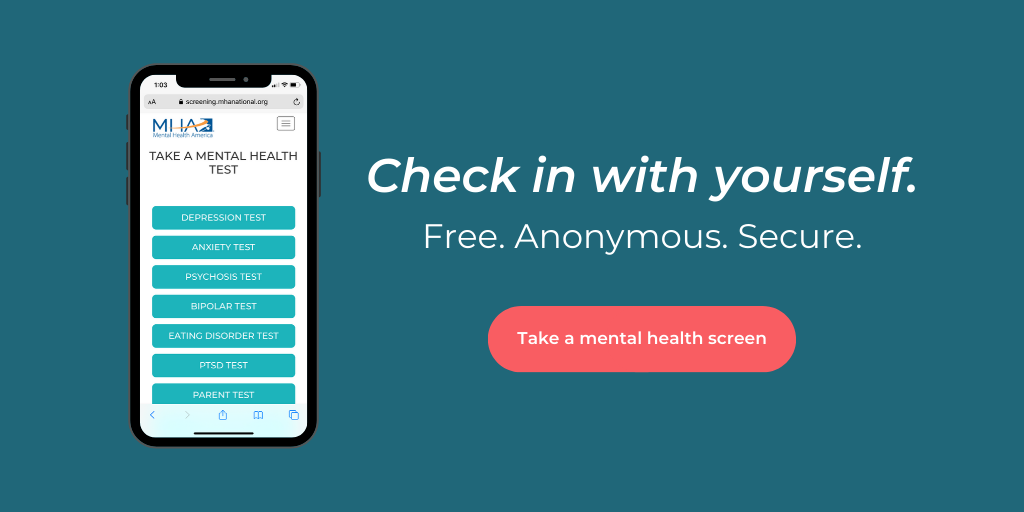Stress is a natural part of life. The expressions are familiar to us, “I’m stressed out,” “I’m under too much stress,” or “Work is one big stress.
Stress is hard to define because it means different things to different people; however, it’s clear that most stress is a negative feeling rather than a positive feeling.
You may feel physical stress which is the result of too much to do, not enough sleep, a poor diet or the effects of an illness. Stress can also be mental: when you worry about money, a loved one’s illness, retirement, or experience an emotionally devastating event, such as the death of a spouse or being fired from work.
However, much of our stress comes from less dramatic everyday responsibilities. Obligations and pressures which are both physical and mental are not always obvious to us. In response to these daily strains your body automatically increases blood pressure, heart rate, respiration, metabolism, and blood flow to you muscles. This response, is intended to help your body react quickly and effectively to a high-pressure situation.
When you are constantly reacting to stressful situations without making adjustments to counter the effects, you will feel stress which can threaten your health and well-being.
It is essential to understand that external events, no matter how you perceive those events which may cause stress. Stress often accompanies the feeling of “being out of control.”
Remember, each person handles stress differently. Some people actually seek out situations which may appear stressful to others. A major life decision, such as changing careers or buying a house, might be overwhelming for some people, while others may welcome the change. Some find sitting in traffic too much to tolerate, while others take it in stride. The key is determining your personal tolerance levels for stressful situations.
Stress can cause physical, emotional and behavioral disorders which can affect your health, vitality, peace-of-mind, as well as personal and professional relationships. Too much stress can cause relatively minor illnesses like insomnia, backaches, or headaches, and can contribute to potentially life-threatening diseases like high blood pressure and heart disease.
If you haven't already done so, you can try our Stress Screener.
As you read the following suggestions, remember that success will not come from a half hearted effort, nor will it come overnight. It will take determination, persistence and time. Some suggestions may help immediately, but if your stress is chronic, it may require more attention and/or lifestyle changes. Determine YOUR tolerance level for stress and try to live within these limits. Learn to accept or change stressful and tense situations whenever possible.
- Be realistic. If you feel overwhelmed by some activities (yours and/or your family’s), learn to say NO! Eliminate an activity that is not absolutely necessary. You may be taking on more responsibility than you can or should handle. If you meet resistance, give reasons why you’re making the changes. Be willing to listen to other’s suggestions and be ready to compromise.
- Shed the “superhero” urge. No one is perfect, so don’t expect perfection from yourself or others. Ask yourself, “What really needs to be done?” How much can I do? Is the deadline realistic? What adjustments can I make?” Don’t hesitate to ask for help if you need it.
- Meditate. Just ten to twenty minutes of quiet reflection may bring relief from chronic stress as well as increase your tolerance to it. Use the time to listen to music, relax and try to think of pleasant things or nothing.
- Visualize. Use your imagination and picture how you can manage a stressful situation more successfully. Whether it’s a business presentation or moving to a new place, many people feel visual rehearsals boost self-confidence and enable them to take a more positive approach to a difficult task.
- Take one thing at a time. For people under tension or stress, an ordinary workload can sometimes seem unbearable. The best way to cope with this feeling of being overwhelmed is to take one task at a time. Pick one urgent task and work on it. Once you accomplish that task, choose the next one. The positive feeling of “checking off” tasks is very satisfying. It will motivate you to keep going.
- Exercise. Regular exercise is a popular way to relieve stress. Twenty to thirty minutes of physical activity benefits both the body and the mind.
- Hobbies. Take a break from your worries by doing something you enjoy. Whether it’s gardening or painting, schedule time to indulge your interest.
- Healthy life style. Good nutrition makes a difference. Limit intake of caffeine and alcohol (alcohol actually disturbs regular sleep patterns), get adequate rest, exercise, and balance work and play.
- Share your feelings. A conversation with a friend lets you know that you are not the only one having a bad day, caring for a sick child or working in a busy office. Stay in touch with friends and family. Let them provide love, support and guidance. Don’t try to cope alone.
- Give in occasionally. Be flexible! If you find you’re meeting constant opposition in either your personal or professional life, rethink your position or strategy. Arguing only intensifies stressful feelings. If you know you are right, stand your ground, but do so calmly and rationally. Make allowances for other’s opinions and be prepared to compromise. If you are willing to give in, others may meet you halfway. Not only will you reduce your stress, you may find better solutions to your problems.
- Go easy with criticism. You may expect too much of yourself and others. Try not to feel frustrated, let down, disappointed or even “trapped” when another person does not measure up. The “other person” may be a wife, a husband, or child whom you are trying to change to suit yourself. Remember, everyone is unique, and has his or her own virtues, shortcomings, and right to develop as an individual.
Help may be as close as a friend or spouse. But if you think that you or someone you know may be under more stress than just dealing with a passing difficulty, it may be helpful to talk with your doctor, spiritual advisor, or employee assistance professional. They may suggest you visit with a psychiatrist, psychologist, social worker, or other qualified counselor.
Ideas to consider when talking with a professional:
- List the things which cause stress and tension in your life.
- How does this stress and tension affect you, your family and your job?
- Can you identify the stress and tensions in your life as short or long term?
- Do you have a support system of friends/family that will help you make positive changes?
- What are your biggest obstacles to reducing stress?
- What are you willing to change or give up for a less stressful and tension-filled life?
- What have you tried already that didn’t work for you?
- If you do not have control of a situation, what is the next step you need to take to live a healthier life? Accept it, let things go, or get support?
Sometimes being young isn’t all that great. Your parents are getting on your case, and your friends are being weird or maybe you just feel like you have too much to do and not enough time to do it.
Now your stomach hurts, you can’t concentrate in school, and the smallest things get on your nerves. You’re probably stressed out.
Mental Health America surveyed 11-17 year olds who came to MHAScreening.org about what was stressing them out. Here are the top 5 things that caused them stress.
- 76% were stressed about getting good grades
- 76% were stressed about preparing for the future
- 68% were stressed about loneliness
- 62% were stressed about body appearance
- 61% were stressed about juggling priorities (school, sports, jobs, clubs, etc.)
Helping children and teens manage stress
You might not be able to stop what is stressing your child or teen, but you can help them. If you notice that they’re showing signs of stress, try the following:
Remind them to be kind to themselves
No one is perfect. No one gets it right all the time. No one always has all the answers. If they are trying hard and doing their best, that’s what is important.
Help them manager their time
If they feel overwhelmed with all that they need to get done, help them to set a schedule and set small goals and break down tasks into manageable chunks. If they still feel overwhelmed, it may be necessary to cut out some activities.
Don't forget the basics
Feed them healthy foods, and limit caffeine and sugar. Encourage them to go to bed by a certain time so they get enough sleep for the following day.
Look out for signs of substance use
Teens especially may turn to drugs, alcohol, or vaping to cope with stress. If you find out that your child or teen has, remind them that substances won’t solve anything and may lead to bigger problems, and keep a close eye on their behavior.
Let them know it's ok to "let it out"
They may need to cry or have a good laugh. Laughing and crying can both help release the feeling of pent up emotions.
Help them relax
Relaxing is essential for everybody’s physical and mental health. Find out what really helps them relax and encourage them to spend at least half an hour each day doing it. It might be curling up with a good book, going on a bike ride, or listening to music.
Tell them you love them
Children and teens may stress themselves out because they feel as though they need your approval. It’s important that they know you will love them no matter what.
Remind them that it's ok to ask for help
No one should suffer in silence and knowing when to ask for help is a strength, not a weakness. Make sure they know that you are there to talk if they need you and be open to finding additional help through school counselors or mental health professionals if problems with stress continue.
Risk Factors for Toxic Stress
Exposure to Trauma
Previous exposure to trauma, especially in early childhood and adolescence when the brain and body are still developing, can make it more difficult to respond to stressors later in life. An example of research on how past trauma causes both toxic stress and intergenerational trauma is research on Adverse Childhood Experiences (ACEs). Any ACEs risk is a childhood experience that impacts safety for children. These experiences include childhood abuse or neglect, poverty, or exposure to violence. Other trauma that can lead to toxic stress is community violence or even prolonged bullying.
Stress and trauma become toxic when they are serious, frequent, and/or prolonged. When we experience that stress response often or for a long period of time, it can wear the brain and body down, and results in weakened systems and changed brain architecture that can affect our overall physical, mental and emotional health. People who experience toxic stress can be diagnosed with PTSD or Complex PTSD. However, experiencing trauma or toxic stress early in life does not guarantee that you will experience toxic stress later. While 90% of people experience some form of trauma in their life, most are fully capable of responding to and reducing the effects of stress, through building resiliency and other protective factors.
Health behaviors
Stress and trauma can impact your brain all on its own, but it’s made worse when we don’t take care of our health. Sleep is when your brain heals, but when you’re stressed it’s likely you’re not sleeping well, which exacerbates the problem. Eating unhealthy foods also increases your brain and body’s inflammatory response which makes it harder for your brain and body to process information to be healthy. Over time, unhealthy eating, lack of exercise, excessively using alcohol or drugs, or getting very little sleep adds up and makes everything harder. Along with having a harder time with working through trauma, people can develop other health conditions that make them feel less well.
Protective Factors for Toxic Stress
Resilience, or the ability to respond and grow from challenges, is not a fixed trait, and can always be increased through supports and skills that we can practice regularly. While we will always experience stress, these protective factors can help us increase resilience, mitigate the negative effects, and return our bodies and brains to baseline stress levels more efficiently, so stress does not become prolonged.
Social Support: Several studies have found that one of the biggest protective factors for toxic stress is having a stable and supportive relationship with one other person. Just having someone who we know can be there for us when we are experiencing stress makes it easier for us to handle life’s challenges and uncertainties.
Creating secure relationships and building social support can occur at any time. Try to build connections and find people who will validate your feelings and support you through hardship. Especially in times when we are forced to be isolated, it’s important to stay connected. Reach out to people you haven’t spoken with in a while, join a new online community with people with the same interests as you, and know that it’s okay to ask others for support. They may be experiencing the same stress, and your support may be invaluable to them as well.
Small Steps Towards Health: To help reduce your body’s stress response, make sure you are engaging in healthy behaviors, like getting 7-9 hours of sleep, eating healthy foods, being active and staying hydrated. Try to avoid excessive caffeine intake or alcohol or substance use, which can increase the body’s reaction to stress. It is especially important to try to build and maintain these healthy habits during this time of social isolation, when it may be more difficult to establish a routine and keep our bodies and minds regulated.
Building Mindfulness and Gratitude: Taking time to practice mindfulness can help to recognize and accept your emotions, build resilience and buffer the effects of persistent stress in the future. You can engage in mindfulness through breathing techniques, journaling, meditation, or by downloading and using a mindfulness app to get started. Research has also shown that practicing gratitude can serve as a protective factor against stress. Listing three things you are grateful for each day can help to train your brain to focus on the good and perceive challenges as less of a threat when they arise.
Focus on Progress: Often when we experience stress, it is because we don’t feel like we have a sense of control. When a problem arises, it can be helpful to think through what part of the response you can control, and work toward solving the problem in small pieces, and celebrate even small progress. Building this sense of control and strategies for problem-solving can help you respond to new stressors that arise in the future.
Seeking Help: Sometimes part of building resilience is realizing that you can’t do it all on your own, and a trained mental health professional can help you improve building your resilience and mitigating the effects of toxic stress. Many mental health professionals are still providing support during this time through telehealth.
To find a mental health provider, use SAMHSA’s Treatment Locator here. If you or someone you know is struggling or in crisis, help is available. Call or text 988 or chat 988lifeline.org. You can also reach Crisis Text Line by texting MHA to 741741.
Get additional information about stress at Psych Central.
Stress Screener
Not sure if your stress is impacting your life? Take our stress screener.
Fitness 4Mind4Body: Stress
Learning how to manage your stress can be a small change with a big positive impact on your physical and mental health.
How Stress Hurts
When our bodies stay triggered for too long, lots of possible health problems can develop or worsen.






